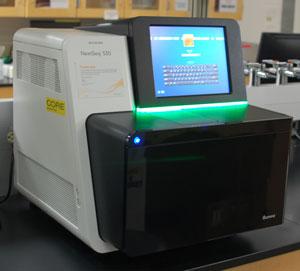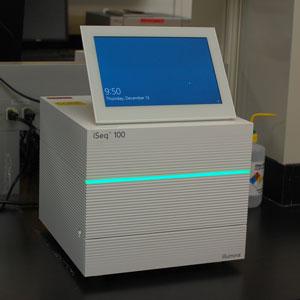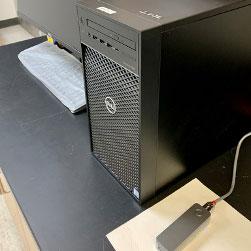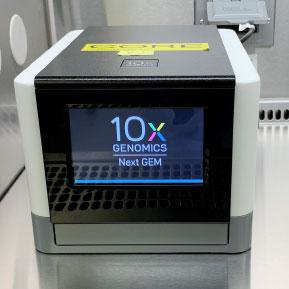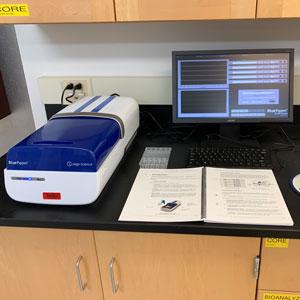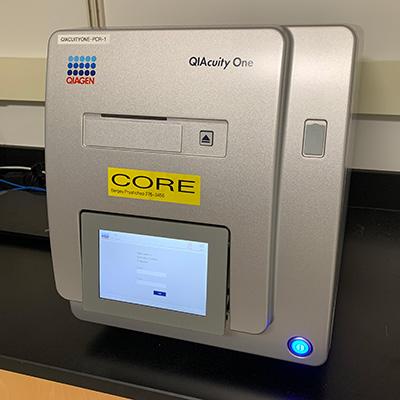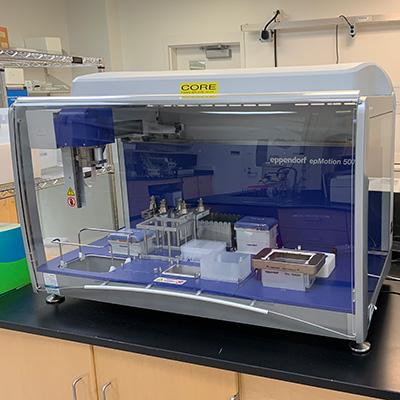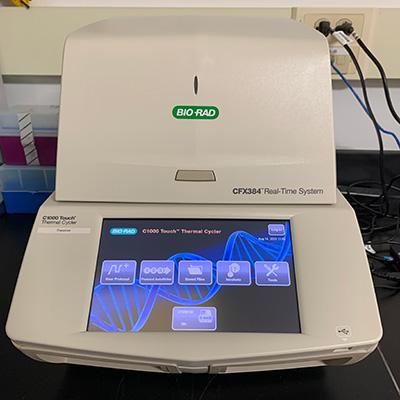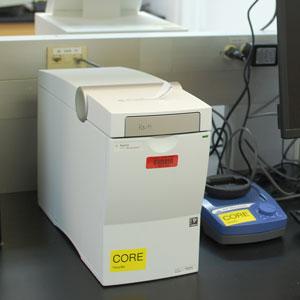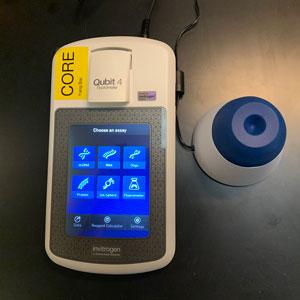The Genomics Research Core Facility applies state-of-the-art next generation sequencing (NGS) technologies to interdisciplinary biomedical, biochemical and biological research. Adapting fast developing NGS tools, our key applications include whole genome resequencing for genome-wide polymorphism and mutation detection, transcriptome profiling for quantification of gene expression and discovery of novel transcripts, alternative splicing events and transcribed SNPs, sequencing of bisulfite-treated DNA for detection of methylated DNA, chromatin immunoprecipitation-sequencing (ChIP-seq) for genome-wide mapping of protein-DNA interactions, microbial metagenomic sequencing, small RNA sequencing, etc. For each application, we offer comprehensive services from high quality nucleic acid extraction, NGS library preparation and sequencing to bioinformatic data analysis, as well as consultation and training.

The Genomics Core Facility houses:
- Sequencing platforms:
- Single cell instruments:
- High-sensitivity nucleic acid instruments:
- Agilent 2100 Bioanalyzer
- Invitrogen Qubit 4 fluorometer
- Sage Science BluePippin DNA Size selector
- BioRad thermal cycler
- BioRad gel electrophoresis system
- Advanced quantification systems:
- Liquid handling automation:
Contact Information:
Amy Gordon, Ph.D.
Genomics Research Core Director
518-276-4117
gordoa2@rpi.edu
Sample Requirements
Only DNA and RNA samples are accepted in compliance with RPI Institutional Biosafety Committee protocols and policies.
| Sample Type | genomic DNA | total RNA | self-prepared library |
|---|---|---|---|
| Sample Purity (OD260/280) | 1.8-2.0 | 1.8-2.0 | 1.8-2.0 |
| Recommended RIN | / | ≥ 7.0 | / |
| Recommended Quantity | >5 µg, >100 ng/µl | >3 µg, >100 ng/µl | 10-50 nM, ≥ 10ul |
| Resuspension Buffer | nuclease-free water, EB, or low TE buffer | nuclease-free water | nuclease-free water, EB, or low TE buffer |
| Shipment Method | dry ice | dry ice | dry ice |
Service Request
Step 1 - Request a project:
- For iLab users, click on https://rpi.corefacilities.org/account/login to log in the Genomics core iLab website. Under ‘Request Services’ tag, click ‘initiate request’ button to fill in project information step by step.
- For other users, please email to gordoa2@rpi.edu. New iLab account can be set up by request.
Step 2 - Submit sample information:
- For iLab users, templates of sample information will be provided in the system while you fill in your project request. Please download and fill in the template form, change file name (such as user_date) and upload back to iLab.
- For other users, if you submit samples for NGS library preparation and/or QC, please download and fill in the Template of Library Prep and email to gordoa2@rpi.edu. If you submit self-prepared dsDNA libraries for sequencing, please download and fill in the Template of Sequence Self-prepared library and email to gordoa2@rpi.edu.
Step 3 - Deliver nucleic acid samples to the Genomics Core:
- Pack according to the sample requirement and label tubes clearly. A sample list is recommended within the package.
- For non-RPI users, if you order Illumina sequencing kit yourself, please directly ship it from the vendor to our core facility.
- Mailing Address:
Amy Gordon
Rensselaer Polytechnic Institute
BioTech Bldg BT2434
110 8th Street
Troy NY, 12180-3590
Data storage
Sequencing and Analysis data will not be stored in the core server beyond 6 months.
Consultation
Monday and Thursday 4:00 pm -- 5:00 pm consultation is free of charge. Other time consultation is by appointment only with hourly personnel fee.
Hours
Monday to Friday 9:00 am to 5:00 pm
Billing
Users will be required to provide billing information prior to requesting services. Users with multiple billing accounts should specify the account number to be charged upon sign-up. Both internal and external users will be billed on a monthly basis. Providing fraudulent and/or inaccurate billing information may result in the loss of use privileges.
Technology and Service:

